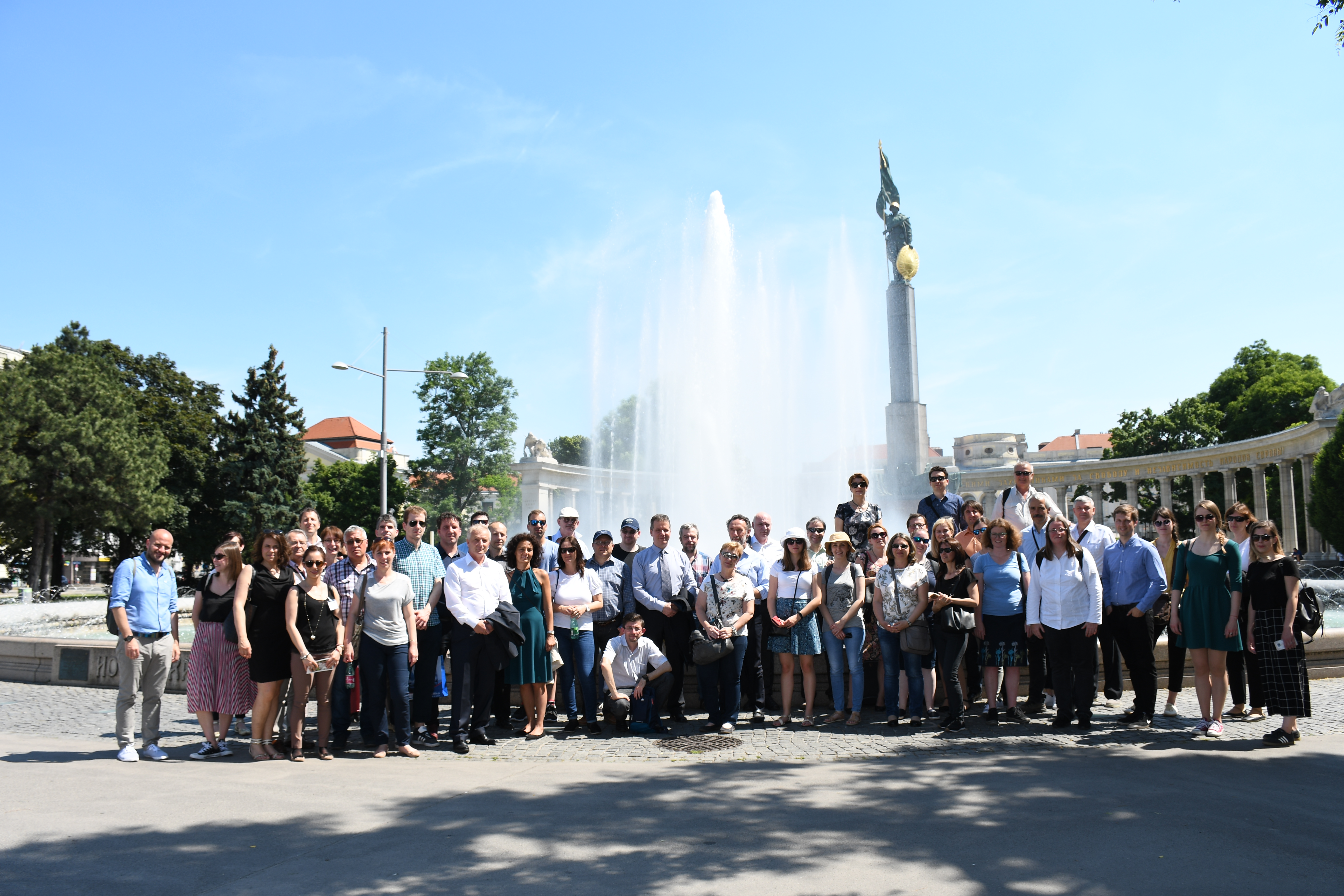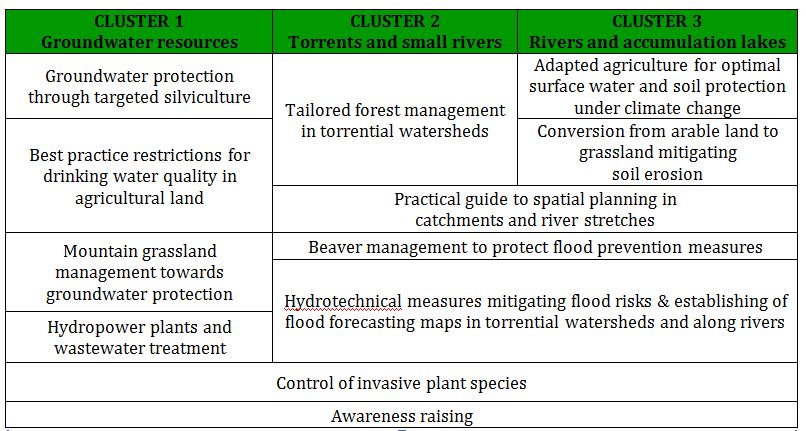|
|
| |
| |
 |
final project conference - Vienna, june 03/04, 2019
|
| |
| |
|
|
|
Dear readers,
the CAMARO-D project will come to an end in June 2019.
During the final project-conference, carried out on June 03 and 04, 2019 in Vienna, the major project outputs were presented and a declaration as a strategic outline for the future was signed by notable representatives of the participating institutions from nine different countries.
The conference was organized jointly with the CENTRAL EUROPE project PROLINE-CE and around 120 people participated.
The agenda of the successful event is part of the conference-proceedings. Moreover, you can find out more about the conclusions of the panel discussion held in the afternoon of June 3. Last but not least, the abstracts of the presentations held by the work-package leaders of both INTERREG projects are part of the proceedings.
Further below, you can find information on the main project outputs: these newly developed planning instruments demonstrate procedures for a sound water management on a transnational basis and additionally provide important inputs for the further development of the EU Strategy for the Danube Region (EUSDR) and other relevant EU-policies like the Water Framework Directive, Floods Directive and Nitrates Directive.
A platform for ongoing cooperation after project-end is available, too: come and visit the CAMARO-D platform.
The main outputs can also be found in the Library Section of the project website.
|

|
After the successful event, an excursion was organized in Vienna
| |
 |
Knowledge base
|
| |
|
In a first step, the project CAMARO-D identified negative practices used within the entire Danube catchment. These gaps were listed at pilot area levels, depending on the respective forms of land use. The approach, which was carried out, was a unique opportunity to confront existing literature (objective information), with specifically gathered information from CAMARO-D expert teams (GAP analysis) and stakeholders’ opinions (SWOT analysis).
The performed analysis within the work-package "Investigative Danube" helped to define real gaps in landscape management.
Here you can find the knowledge-base.
If you want to learn more about the work in this work-package, feel free to contact the work-package leader, Tomas Dostal, from CTU (Czech Technical University), PP11.
|
|
| |
 |
Best Practice Management
|
| |
 |
| Overview of the transnational best practice manuals |
|
In the pilot areas, certain “problems” were identified in several countries of the Danube River Basin and the respective best practices were elaborated by the whole project consortium.
As a result, twelve transnational best practice manuals (BPMs) provide ideas of how to solve existing conflicts between land uses or vegetation cover and the protection of water resources. Furthermore, they show how flood prevention challenges in the countries of the Danube River Basin are linked to existing strategies and policies while also collaborating with the local population, institutions and governmental authorities.
Here you can find the reports on the pilot action clusters.
If you want to learn more about the work in the pilot areas and related reports, feel free to contact the work-package leader, Renate Mayer from AREC (Agricultural Research and Education Center Raumberg-Gumpenstein), PP1.
|
|
| |
 |
GUIDR (Guidance for sustainable land use planning)
|
| |
|
CAMARO-D project focused directly on land use planning and its potential contribution to sustainable water management and specifically its role in achieving the EU Water Policy objectives as articulated in the Water Framework Directive (WFD) and ensuring water security in the Danube basin.
In this context, the developed GUIDR document (Guidance for the Danube Region for sustainable land use planning) serves as guidance to linking land use/land use planning and water management.
It became evident, that the development of joint standards on transnational level is a challenging and rather slow process, but essential for the development of the transnational concept for land use planning. The provision of national inputs and common work with stakeholders is crucial for the process. Thus, awareness raising activities and education of the general public on existing environmental pressures should be taken to a higher level, since the stakeholder engagement is an integral part of good practice in modern policy-making, particularly in initial stages of policy development. Continued coordination between all stakeholder groups is a key element in the successful implementation of any of the GUIDR guidelines.
Here you can will find the GUIDR document which is currently in its finalization phase and will be uploaded as soon as possible.
If you want to learn more about the work-package "Visionary Danube", feel free to contact the work-package leader, Dragana Spasic from JCI (Jaroslav Černi Institute for the Development of Water Resources), IPA-PP1.
|
|
| |
 |
Concept for a Land Use Development Plan
|
| |
|
A concept for a Land Use Development Plan (LUDP) was elaborated which will enable cooperation and coordination of different sustainable land use management practices in the Danube river basin. It represents the initial action for a transnational catchment-based cooperation and the commonly developed measure bundles should therefore be integrated in existing River Basin Management Plans and Flood risk management plans.
Here you can find more information on the LUDP.
If you want to learn more about the work-package "Progressive Danube", feel free to contact the work-package leader, Albena Bobeva from EFA (Executive Forest Agency), PP09. |
|
| |
 |
How to get more information on CAMARO-D
|
| |
- The project brochure gives a comprehensive overview of the work achieved during the 2,5 years of project implementation.
|
|
|
|
| |
|
If you have received this newsletter, you have been included on one or more of the Danube Transnational Programme/projects postal mailing lists. We are committed to respect and protect the privacy of personal data collected. We regard your personal data as confidential information and will never communicate it to third parties. Your personal data are used mainly for the express purpose of receiving the newsletter. Your mailing details may also be used by the DTP and its projects for information and dissemination purposes strictly related to the programme and its projects. If you prefer not to receive more of this newsletter and your data not to be used for dissemination purposes, you can unsubscribe by sending a reply email.
|
|
|
|
|
|
